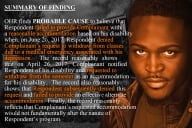You have /5 articles left.
Sign up for a free account or log in.
Can speech that hurts feelings get you in trouble at Dartmouth College? That's what libertarian critics of the college have been charging for some time, saying that the college has a speech code that squelches free expression.
Dartmouth has said that its policies have been distorted. But this month, the college clarified its stance and at least some of its critics now say that the college no longer has policies that inhibit free speech on the campus. The clarification comes as the college is counting the votes in a trustee election in which the college's speech policies were a major issue.
Much of the dispute at Dartmouth centers on letters college officials released in 2001, following an incident in which members of Zeta Psi fraternity distributed a newsletter describing the sexual exploits of members with various female students who were named and whose alleged sexual practices were discussed in graphic detail.
The college revoked the recognition of the fraternity and James Wright, the president of the college, in a letter explaining his action, said that it was "hard to understand why some want still to insist that their ‘right’ to do what they want trumps the rights, feelings, and considerations of others. We need to recognize that speech has consequences for which we must account." That statement, and similar ones by Dartmouth trustees, have led to the charge that the college limits free speech since many statements would hurt the "feelings" of other students.
In particular, critics have noted that the presence of that letter on the college's Web site would appear to overpower other college statements about encouraging the free exchange of ideas, even controversial ones.
But on Monday, the Foundation for Individual Rights in Education, which has been harshly critical of Dartmouth, released a statement about recent correspondence between FIRE and college officials. A letter from Robert B. Donin, Dartmouth's general counsel, told FIRE that the 2001 letters had been removed from the college's Web site, and could not be relied on as college policy.
Based on those developments, "FIRE no longer considers Dartmouth to have a speech code. Moreover, Dartmouth is clearly positioning itself as a national leader in the battle for free expression on campus," said David French, FIRE’s president.
The issue of speech at Dartmouth has been contentious in the trustee elections in which alumni voting ended on Friday, but for which results have not yet been announced. Two candidates -- who conducted petition drives to get on the ballot, rather than being nominated by official alumni leaders -- ran on platforms stating that the college needed to do more to protect free speech on campus.
Both of those candidates said yesterday that they were pleased with the latest developments, but wanted to see more action by the college. One of those candidates, Peter Robinson, a fellow at the Hoover Institution, called the recent statements a "very badly overdue first step." He said that the college still needs "to commit itself to free speech, and to do so affirmatively and unambiguously."
The other candidate who has been pushing on this issue is Todd J. Zywicki, a professor of law at George Mason University. He said that the new statements were "half the battle -- I hope Dartmouth will still work to articulate a formal and positive policy embracing free speech on campus and removing any ambiguity about rights of freedom of speech and expression."








